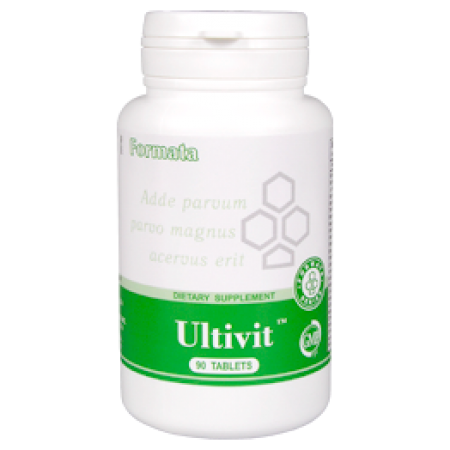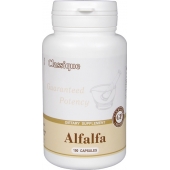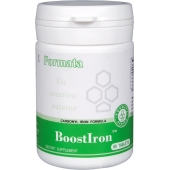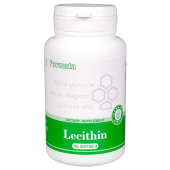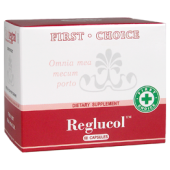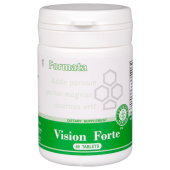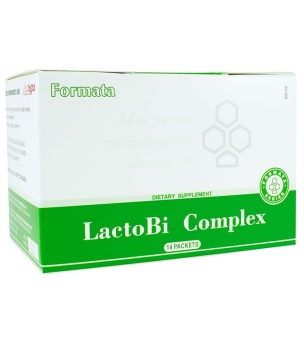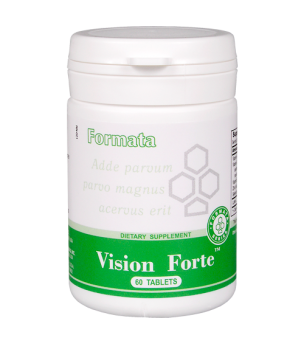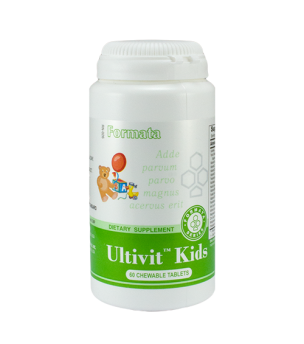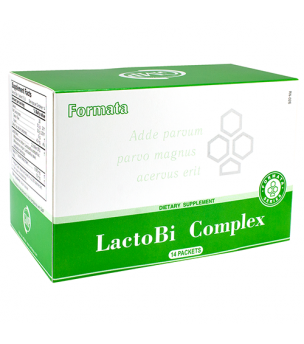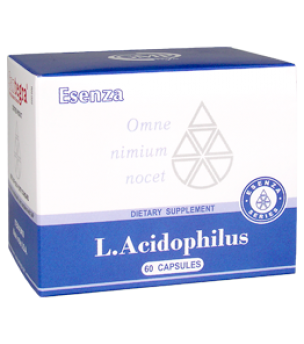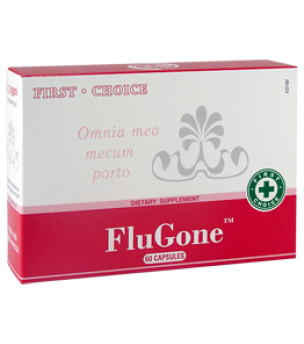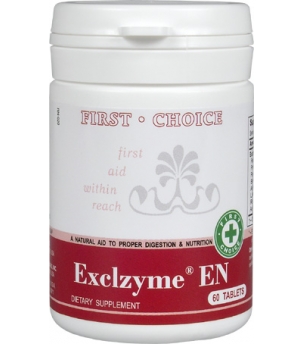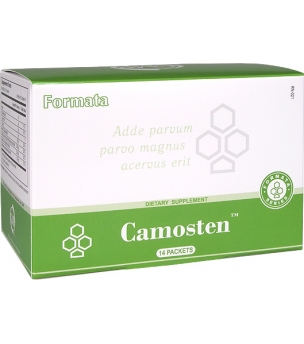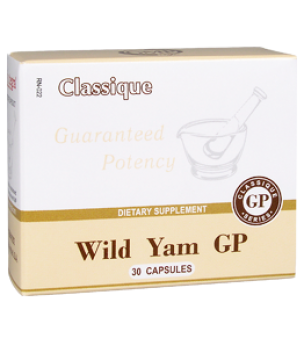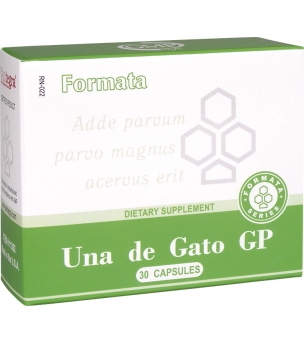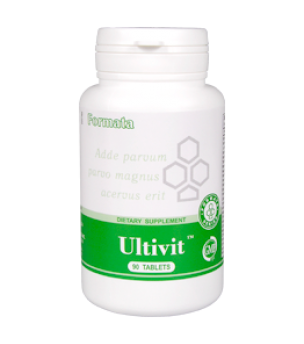-
Welcome visitor you can login or create an account.
Ultivit ™ (90)
Ex Tax: 24.71€
Vitamin A plays an important role in vision, growth, and reproduction. Vitamin A helps regulate the immune system, which prevent or fight off infections by making white blood cells that destroy harmful bacteria and viruses. Vitamin A also may help lymphocytes (a type of white blood cell) fight infections more effectively.
Vitamin A helps decrease the risk of cancer development.
Vitamin A plays essential roles in the development and maintenance of healthy skin, hair, nails, and mucous membranes, regulates bone growth. Vitamin A promotes healthy surface linings of the eyes, participates in pigment formation, improves twilight and chromatic vision, prevents cataract development, and macular degeneration - old age diseases.
Vitamin C is required for the growth and repair of tissues in all parts of your body. It is necessary to form collagen, an important protein used to make skin, scar tissue, tendons, ligaments, and blood vessels. Vitamin C is essential for the healing of wounds, and for the repair and maintenance of cartilage, bones, and teeth.
Vitamin C is an antioxidant. Antioxidants block some of the damage caused by free radicals. The build up of free radicals over time is largely responsible for the aging process and can contribute to the development of various health conditions such as cancer, heart disease, and an inflammatory conditions (like arthritis). Antioxidants also help reduce the damage to the body caused by toxic chemicals and pollutants (such as cigarette smoke).
Vitamin C is extremely important for cardio-vascular system, it helps decrease blood cholesterol level, blood viscosity, and thrombus formation.
The body does not manufacture vitamin C on its own. It is therefore important to include plenty of vitamin C in your daily diet.
The major biologic function of vitamin D is to maintain normal blood levels of calcium and phosphorus. By promoting calcium absorption, vitamin D helps to form and maintain strong bones. Without vitamin D, bones can become thin and brittle. Vitamin D sufficiency prevents rickets in children and osteomalacia in adults, two forms of skeletal diseases that weaken bones. Research also suggests that vitamin D may help maintain a healthy immune system and help regulate cell growth and differentiation.
Vitamin E is an antioxidant that protects your body against the effects of free radicals. Vitamin E has also been shown to play a role in immune function, in DNA repair, and other metabolic processes.
Vitamin E has a unique ability to protect fat cells (including cholesterol) from oxidation, a major quality for proper cardio-vascular system functioning. Vitamin E helps maintain blood vessel’s wall elasticity, decreases blood coagulation, prevents clot formation, and improves circulation. Clinical researches conducted in the last 10 years proved that vitamin E plays an important role in prophylaxis of cardio-vascular diseases, strengthens the immune system.
Vitamin B1 (thiamine) plays an important role in helping the body convert carbohydrates and fat into energy. It is essential for normal growth and development, helps to maintain proper function of the heart, nervous and digestive systems.
Vitamin B2 is required for a wide variety of cellular processes; it plays a key role in energy metabolism, and is required for the metabolism of fats, carbohydrates, and proteins. Vitamin B2 is important for nervous, immune, and vision systems’ functions.
Vitamin B3 (niacin) plays essential role in energy metabolism in the living cell and DNA repair. Niacin is effective in improving circulation and reducing “bad” cholesterol (low density cholesterol) and triglycerides levels; increases “good” cholesterol (high density cholesterol) in the blood. (1, 2)
Vitamin B6 (pyridoxine) is required by nervous and immune systems to function properly, and for new healthy cell growth. Vitamin B6 is needed for more than 100 enzymes involved in protein, fat, and carbohydrates metabolism, and since vitamin B6 is used in synthesis of the neurotransmitters, it is recommended for the support of mental functions (such as mood).
Folic acid (Vitamin B9) aids in the production of DNA and RNA, the body’s genetic material, and red blood cells; for nervous and cardio-vascular systems functions.
Vitamin B9 works to control blood levels of the amino acid homocysteine. Elevated levels of this substance appear to be linked to certain chronic conditions such as heart disease and, possibly, depression and Alzheimer’s disease. (3)
Vitamin B9 level decreases with age, but homocysteine level increases.(4) Supplemental folic acid intake can prevent the increase in homocysteine blood level. (5)
Vitamin B12 is essential for the maintenance of the nervous and cardio-vascular systems, for the synthesis of molecules, which are involved in the production of energy, red blood cells formation. It is also needed to make DNA, the genetic material in all cells. Vitamin B12 in combination with Folic acid, and vitamin B6 control homocysteine blood level, decreasing the risk of cardio-vascular disease development. Vitamin B12 deficiency can cause irritability, depression, and cognitive changes (loss of concentration, memory loss), loss of endurance.
Biotin is important in the production of essential metabolic reactions to synthesize fatty acids, metabolism of fats, and amino acids. Biotin is also helpful in maintaining a steady blood sugar level. Biotin is often recommended to improve skin condition, for strengthening hair and nails.
Pantothenic Acid (Vitamin B5) plays a major role in many principal body functions. Pantothenic Acid is an anti-stress vitamin (water-soluble) and stamina enhancer. This vitamin plays an important role in production of adrenal hormones (adrenal glands). It is required for the formation of antibodies (immune system), and helps to convert carbohydrates, fats, and proteins into energy. Vitamin B5 is a component of coenzyme A, which is needed to carry out metabolic functions. Additionally, Vitamin B5 helps to produce neurotransmitters required for proper nerve and muscle performance. A deficiency of Pantothenic acid may cause fatigue, psoriasis, and headache.
Calcium is essential for the normal growth and maintenance of bones and teeth, that is why calcium requirements must be met throughout life. Long-term calcium deficiency can lead to osteoporosis, in which the bone deteriorates and there is an increased fracture risk. Calcium is vital for support of cardio-vascular system’s functions, nerve impulse transmission, muscle growth and traction, prevents muscle spasms.
The result of many clinical trials demonstrated that regular long term supplemental calcium sufficient dose not only slows down bone resorption, but can reduce the risk of bone fracture. (6,7)
Supplemental calcium intake is extremelly important for women during menopause since they are more susceptable to osteoporosis. The research also showes that additional calcium can decrease the risk of cardio-vascular diseases in menopausal women. (8)
Calcium posess the ability to bind fat and cholesterol in the digestive truct. Some research suggests that because of this quality, Calcium can decrease blood cholesterol level. (9)
Iron is an essential component of proteins involved in oxygen transport. Almost two-thirds of iron in the body is found in hemoglobin, the protein in red blood cells that carries oxygen to tissues. Iron deficiency limits oxygen delivery to the cells, resulting in fatigue, poor work performance, and decreased immunity. Iron is also essential for the regulation of cell growth and differentiation. Carbonyl iron has numerous advantages in comparison with other forms of iron: it contains 98% iron, does not contain iron salts, non-toxic: does not have any side effects such as constipation or diarrhea, unlike any other iron salt; easily digested.
Iodine is an essential micro constituent in the human body, concentrated mostly in the thyroid gland. The thyroid gland secretes iodine-bearing hormones, which are essential for maintaining normal metabolism in all the body’s cells. It regulates energy production, heat exchange; regulate cardio-vascular system functions, central nervous system development, vital for growth of the organism, and its susceptibility to the environment’s harmful effects.
Magnesium is a vitally important mineral for human health with a wide range of biological functions. Magnesium is essential for more than 300 biochemical reactions in human body. It plays a major role in skeletal system support, increases calcium assimilation. Magnesium is required for support of nervous and immune systems, participates in energetic metabolism and protein synthesis, and regulates blood sugar level. Magnesium can regulate arterial blood pressure. (10)
Zinc is an important microelement that stimulates activity of more than 100 enzymes in a human body. Zinc is essential for immune system support, for normal growth and development, and many different aspects of reproductive functions. It is needed for wound healing activity, DNA synthesis, sense of smell and taste.
Selenium is an essential micronutrient for normal cardio-vascular functions. Clinical trials showed the inverse negative relationship between blood Selenium concentration and the risk of developing cardio-vascular disease.
Selenium is required for activation of large quantity of enzymes used in antioxidant protection, that is vital for cardiac health.
Copper is a component of many enzymes. Some of these enzymes act as antioxidants. They help protect cells against damage by free radicals, which are reactive by-products of normal cell activity. Other enzymes are necessary for energy production, or for the formation of the hormone epinephrine, red blood cells, bone, or connective tissue. Most of the copper in the body is located in the liver, bones, and muscle, but traces of copper occur in all tissues of the body.
Manganese is necessary for manganese superoxide dismutase production, one of the key antioxidants in the body. Enzymes involved in cholesterol synthesis are manganese dependent. Manganese is required for normal thyroid and adrenal gland activity, needed for vitamin K production, proper iron metabolism.
Chromium is a mineral that humans require in trace amounts, but plays an important role in health support.
Chromium is known to enhance the action of insulin, a hormone critical for metabolism, and storage of carbohydrate, fat, and protein in the body. This is why it is so valuable for cardio-vascular system.
Chromium also appears to be directly involved in carbohydrate, fat, and protein metabolism. Clinical research shows that chromium can help loose a few extra pounds, and in combination with physical exercises has a positive effect on muscles, tone them, and increase their mass.
Potassium is an element that is essential for the body’s growth and maintenance. It’s necessary to keep a normal water balance between the cells and body fluids. Potassium also plays an essential role in the response of nerves to their stimulation and in the contraction of muscles. Cellular enzymes need potassium to work properly. Deficiency symptoms include muscle weakness, decreased reflex response and (in severe cases) respiratory paralysis, alkalosis and arrhythmia.
Choline is necessary for the structure and function of all cells. Choline plays an important role of neurotransmitter within the brain. Choline is a chemical precursor or "building block" needed to produce the neurotransmitter acetylcholine. Research suggests that memory and intelligence are mediated at least in part by acetylcholine metabolism in the brain. Choline prevents deposition of fat in the liver, precludes liver damage. Choline is important for normal cellular membrane composition and repair, normal brain function and normal cardiovascular function.
Inositol plays an important part in the health of cell membranes especially the specialized cells in the brain, bone marrow, eyes and intestines. Inositol helps to improve nerve transmission and helps in transporting fats within the body. Inositol is important for reproductive and visual functions. Inositol helps improve hair condition.
L-cysteine performs a number of functions in the body. It plays a key role in central nervous system function, helps to regulate blood pressure; helps maintain good vision and eye function, and aides in thermogenesis (fat burning) and muscle building. L-cysteine is critical for immune system function because it is a powerful antioxidant that ensures healthy cellular function and nerve signal efficiency. L-cysteine is essential for T-cell production and immune system activation. L-cysteine is also a component of human hair and is a component of the hormone insulin. L-cysteine can also be converted into glucose (for energy production) when blood glucose levels are low and this conversion may enhance athletic endurance. L-cysteine supplementation may be most effective when used in conjunction with vitamin E, vitamin C, vitamin B6 and calcium and selenium.
L-methionine assists in the breakdown of fats and thereby prevents the build-up of fat in the arteries, assisting with the digestive system and removing heavy metals from the body; important in detoxifying the liver. The amino acid methionine is also a great antioxidant. Some studies have also indicated that methionine might improve memory recall. It is also one of the three amino acids needed by the body to manufacture creatine monohydrate, a compound essential for energy production and muscle building.
Butcher’s broom (Ruscus aculeatus) was used by the Ancient Greeks as a laxative and diuretic. In the 50-th of last the last century French scientists discovered that the root of this plant has vasoconstrictive and anti-inflammatory effect. Nowadays Butcher’s broom is used to tone up veins for varicose veins and venous insufficiency, and as a diuretic.
Cayenne pepper (Capsicum frutescens L.) is used in modern Western medicine—mainly in topical preparations—as a circulatory stimulant and pain reliever. Its most common use is to treat digestive complaints such as colic, gas, indigestion, and poor appetite. Chemicals in Cayenne pepper have been shown to increase not only the amount of acid the stomach produces, but also the blood flow in the lining of the stomach and intestines. The pepper contains capsaicin believed to have antibiotic properties.
Hawthorn (Crataegus oxyacantha) is taken traditionally to relieve heart conditions – primarily congestive heart failure, but also angina and arrhythmia. Chemicals in hawthorn act directly on the heart muscle to increase the force of heartbeats and on the blood vessels to relax the arteries around the heart. It may also lengthen the time that the heart rests between beats. Hawthorn also work indirectly by opening up peripheral blood vessels, and as a result, help to lower blood pressure. Chemicals in hawthorn have other effects, as well. Hawthorn produces a mild soothing effect; it is used to treat anxiety and insomnia. Hawthorn has also appeared to lower cholesterol levels both by reducing the production of cholesterol and by increasing the body’s breakdown of cholesterol.
Peppermint is widely known for its soothing effects on the gastrointestinal tract. Peppermint stimulates the saliva production, and as a result increase in swallowing may improve appetite, reduce nausea, or lessen motion sickness. Peppermint has also been used for relieving respiratory conditions such as colds, reduce coughing. Additionally, it is believed to have mild antibacterial, antifungal, and antiviral effects.
Ginger (Zingiber officinale) historically has been used in folk medicine to treat inflammation, prevent the flu, relieve headache. The tea brewed from this root was an old-fashioned remedy for colds. There are several studies that demonstrate a decrease in joint pain from arthritis after taking ginger. It may also have blood thinning and cholesterol lowering properties, making it effective in treating heart disease
The characteristic odor and flavor of ginger root is caused by a mixture of zingerone, shoagoles and gingerols, volatile oils that compose about 1%–3% by weight of fresh ginger. The gingerols have analgesic, sedative, antipyretic, antibacterial, and GI tract motility effects.
| Product | |
| Supplement Facts, Serving Size 1 Capsule: | Vitamin A (from fish liver oil and 10% as beta-carotene) – 4000 IU, Vitamin C (as ascorbic acid, calcium ascorbate, ascorbyl palmitate, acerola (Malpighia glabra L) 4:1 fruit extract, rose (Rosa rugosa) hips powder – 300 mg, Vitamin D (as cholecalciferol) – 65 IU, Vitamin E (as d-alpha-tocopheryl succinate) – 50 IU, Thiamin (as thiamin HCl) – 3.5 mg, Vitamin B2 (Riboflavin) – 5 mg, Vitamin B3 (as niacin and niacinamide) – 10 mg, Vitamin B6 (as pyridoxine HCl) – 5 mg, Vitamin B9 (as folic acid) – 100 mcg, Vitamin B12 (as cyanocobalamin) – 8 mcg, Biotin – 10 mcg, Pantothenic acid (as D-calcium pantothenate) – 10 mg; Calcium (as dicalcium phosphate and from oyster shell) – 120 mg; Iron (as carbonyl iron) – 1 mg, Iodine (as potassium iodide) – 125 mcg, Magnesium (as magnesium citrate) – 40 mg, amino acid chelate: Zinc – 3 mg, Selenium – 25.0 mcg, Copper – 25 mcg, Manganese – 0.5 mg; Chromium (as chromium dinicotinate glycinate) - 20 mcg, Potassium (as potassium citrate) – 40 mg, Choline bitartrate – 72.5 mg, Inositol – 4 mg, PABA (para-aminobenzoic acid) – 25 mg, L-Cystine – 20.3 mg, L-Methionine – 20 mg, Butcher’s broom root (Ruscus aculeatus) – 20 mg, Cayenne pepper fruit (Capsicum frutescens L.) – 5 mg, Hawthorn berry (Crataegus oxyacantha) – 15 mg, Peppermint leaf (Mentha piperita) – 10 mg, Ginger root (Zingiber officinale) – 10 mg. |
| Usage | |
| Contraindications | |
Related Products
-
23.00€
-
27.50€
-
12.50€
-
21.50€
-
19.51€
-
24.90€
-
30.90€
-
17.91€
-
15.50€
-
16.90€
-
29.90€
-
21.60€

